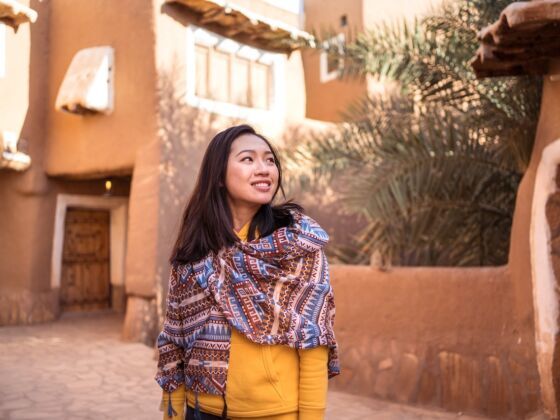Once upon a time, you could only visit Saudi on a pilgrimage or a business sponsorship visa. But a few years ago, the country opened its doors to tourists from more than 60 countries, including the United States, by offering an eVisa. The eVisa is part of Saudi Vision 2030, the country’s plan to diversify its economy and emerge as a hub for tourism and entertainment — and there’s never been a better time to visit. With a blend of indulgent luxury and authentic charm, Saudi is rich in cultural experiences, breathtaking landscapes, extravagant accommodations, and futuristic visions.
Here’s everything you need to know to plan your trip and see this rapidly evolving destination for yourself.
How to get an eVisa
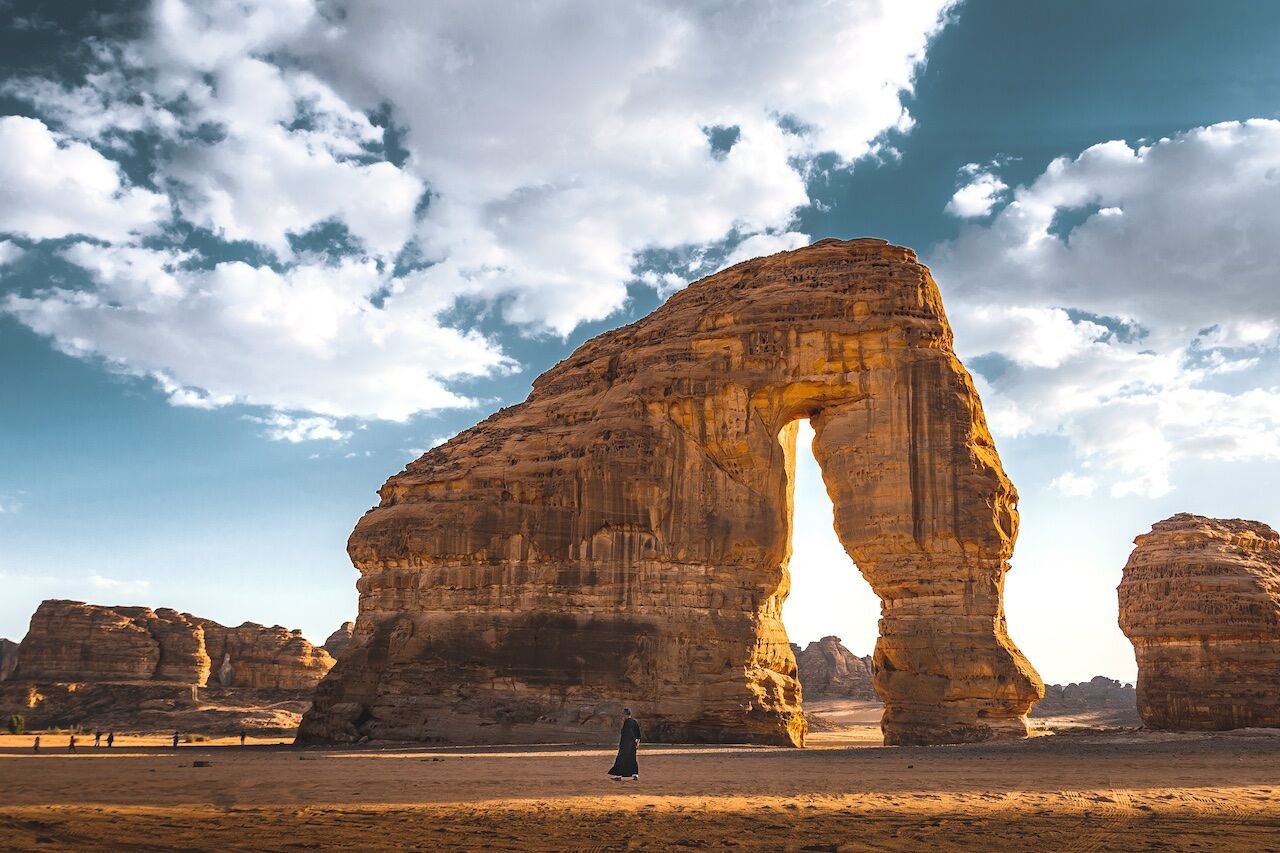
Photo: spc3mky/Shutterstock
1. Requirements and eligibility: Travelers from 63 countries, including the US, are eligible for the eVisa. American citizens also have the option of obtaining a visa on arrival or a transit visa. To apply for an eVisa, you need a passport with a minimum six-month validity, the address of family or friends that you’ll be staying with or a hotel booking, and a passport-size photo.
2. How to apply for the eVisa: To apply online, visit the eVisa portal, fill out an application, attach your passport photograph, and pay the fee. It takes approximately two to five business days for visa processing.
3. How much does it cost? The eVisa costs $130 and includes travel insurance.
4. Validity and entry-exit requirements: The tourist visa is valid for one year and allows for multiple entry and exits during that year. Tourists can spend a total of up to 90 days in the country.
What to pack (and what NOT to pack)
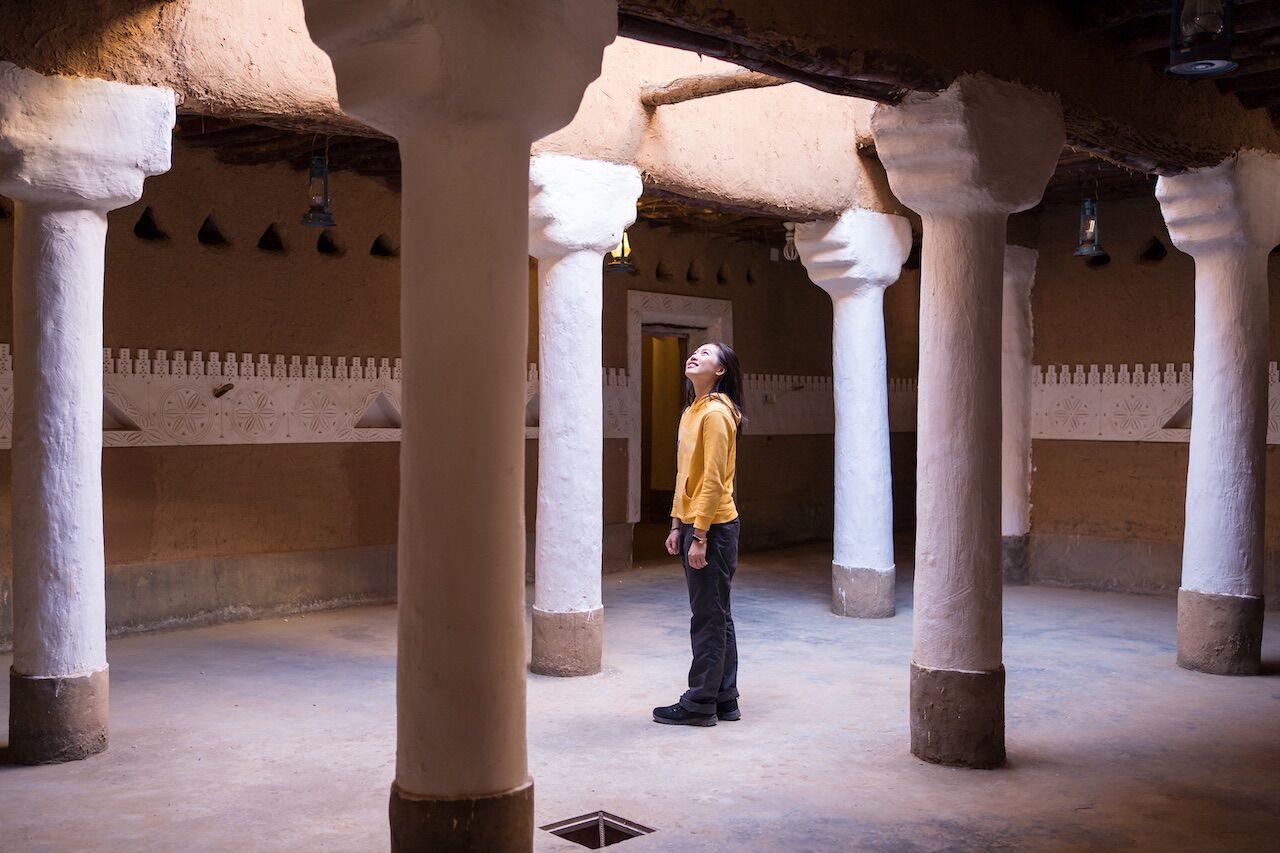
Photo: The Road Provides/Shutterstock
5. Clothing: Be sure to pack modest wear. It’s advisable for both men and women to wear attire that falls below the knees and covers the shoulders. Women should carry a hair cover if planning to visit mosques or other areas of religious significance.
6. Dress for the weather: If you’re visiting during the winter (October through March), bring a lightweight jacket or sweater. If traveling during the summer months, light-colored clothing and a cap will do you well.
7. Medicines: Any medications you’re bringing into the country should be accompanied by the prescription or a doctor’s note.
8. Prohibited: Recreational drugs and alcohol are prohibited in the country.
Getting around
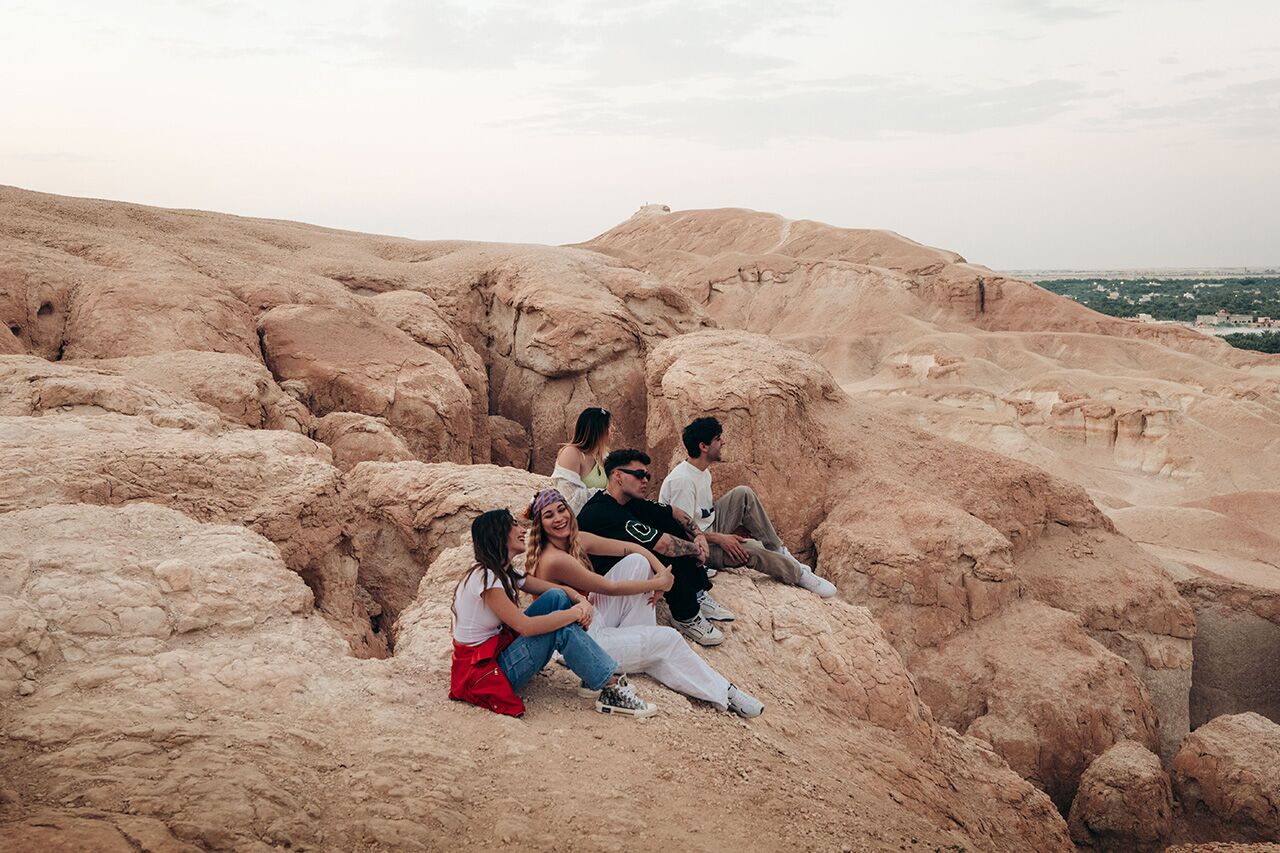
Photo: Saudi Tourism Authority
9. Transportation: Uber and Careem (a popular ridesharing app in the region) are affordable and convenient ways to get around. You can also hail a licensed and metered taxi (they’re green) outside most airports, train and bus stations, and major shopping areas. Intercity buses are economical and run frequently.
To rent a car, you’ll need is a valid international driver’s license, your passport and visa documents, a payment method, and a contact number.
10. Currency and payments: The country’s currency is the Saudi Arabian Riyal (SAR), and at the time of writing $1 US is equivalent to around SAR 3.75. Most establishments accept major debit and credit cards and contactless payment methods like Apple or Google Pay. ATM machines are also widely available.
11. Cellular services: STC, Zain, and Mobily are the major mobile network operators and provide good phone and 4G or 5G internet connectivity in most parts of the country. You can purchase a prepaid SIM card for about $20 at kiosks in the airport or shopping malls. To purchase a SIM, you’ll need your passport and visa and to be prepared to have your fingerprints taken.
12. Language: English is widely spoken in Saudi. However, a few basic Arabic words — As-Salaam Alaykum (may peace be upon you), Marhaba (welcome), and Shukran (thanks) — will get you far. In smaller cities, Google Translate is your best friend!
Cultural customs and etiquette
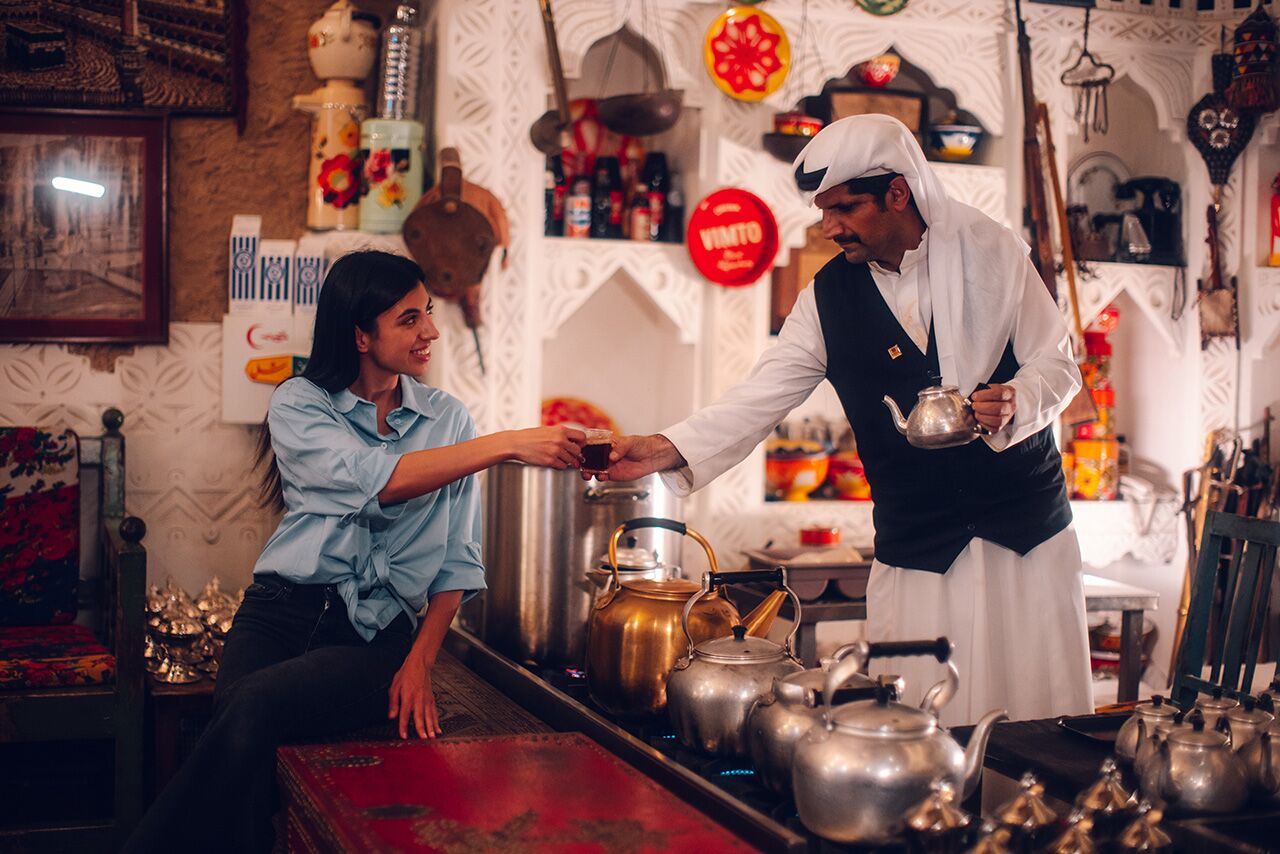
Photo: Saudi Tourism Authority
13. Cultural customs: Hospitality is an important component of Saudi culture. It’s common to be invited for a cup (or several!) of coffee, even if you’re meeting the person for the first time. As with any culture, partaking in their company with an open mind and heart will help you establish friendships that last long after your trip is over.
14. Etiquette: It’s considered offensive to eat or drink with your left hand.
15. Photography: As with any place you visit, don’t photograph people without their permission.
What’s coming up
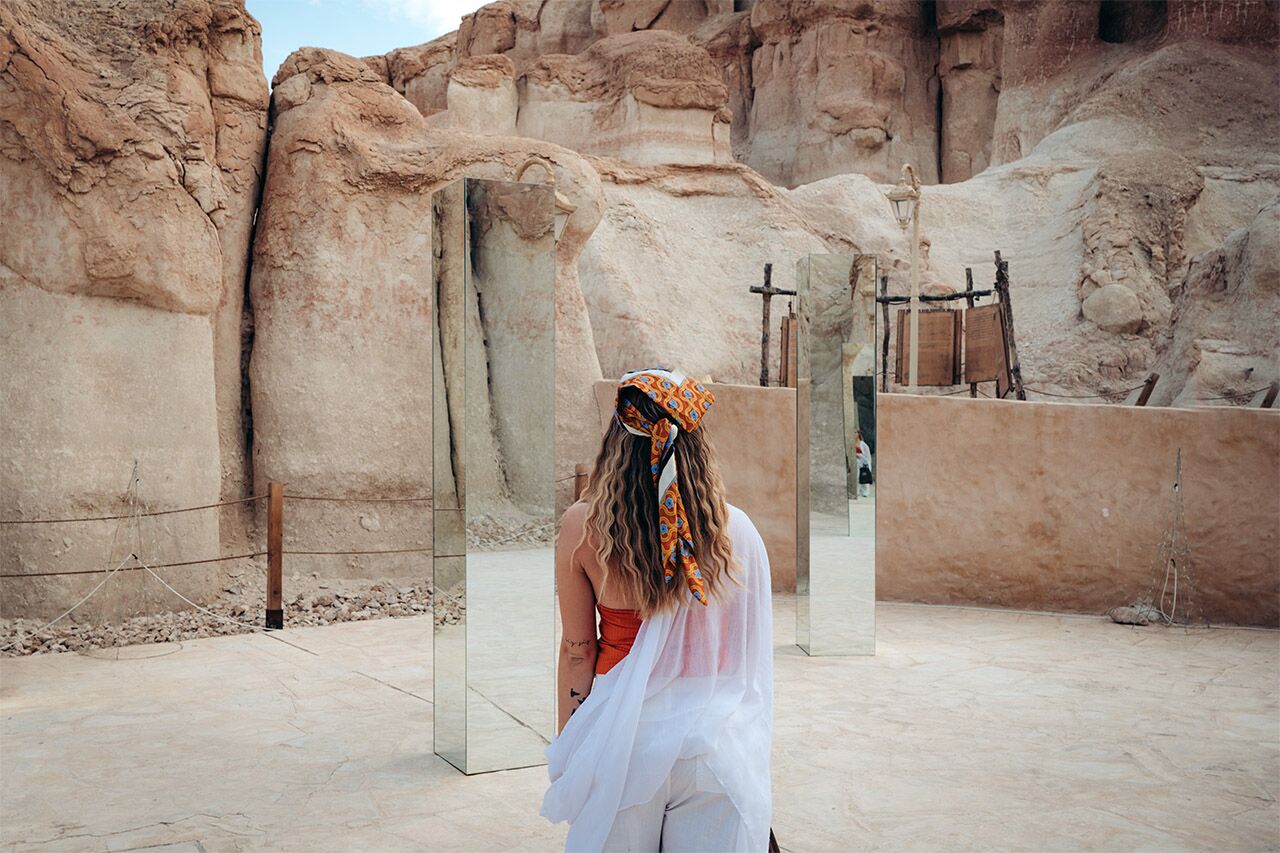
Photo: Saudi Tourism Authority
16. Riyadh Season: For nearly five months, the city of Riyadh is transformed into one large winter party. The season sees various events held at different locations (or zones) across the city. The 2023-24 Riyadh Season promises to be bigger than usual, with 11 zones and lots of concerts, shows, theme parks, and games.
17. MDL Beast Soundstorm, Riyadh: One of the most anticipated music festivals in the region, the MDL Beast Soundstorm promises the best of indie, EDM, house, disco, and more. Past performances have included the likes of David Guetta, Steve Aoki, and Armin Van Buuren. Dates are December 14-16, 2023, and tickets start from $45.
18. Red Sea Film Festival, Jeddah: Hosted at the historic site of Al Balad, the Red Sea Film Festival sees the who’s who of Saudi and Hollywood film industries in attendance. The third edition of the festival, running from Nov 30 to Dec 9, 2023, will feature screenings, workshops, celebrity talks, and red-carpet events. The Film Buff’s Bundle starts at $130.
19. 2023 FIFA Club World Cup, Jeddah: For the first time ever, Saudi will play host to the FIFA Club World Cup championships in December, 2023. The 20th edition of this club tournament is set to take place across two stadiums in Jeddah, and tickets run from $10 to $30. Soccer is a regional favorite, and with a few local clubs playing, you can be sure the energy in the stadiums will be infectious.
20. AlUla Moments: Set against the backdrop of centuries-old archeological wonders, events in AlUla are truly magical. The 2023-24 AlUla Moments has a lineup of events ranging from yoga retreats to astronomy classes, from archeological expeditions to a music and arts festival. It’s a perfect excuse to plan a trip.

